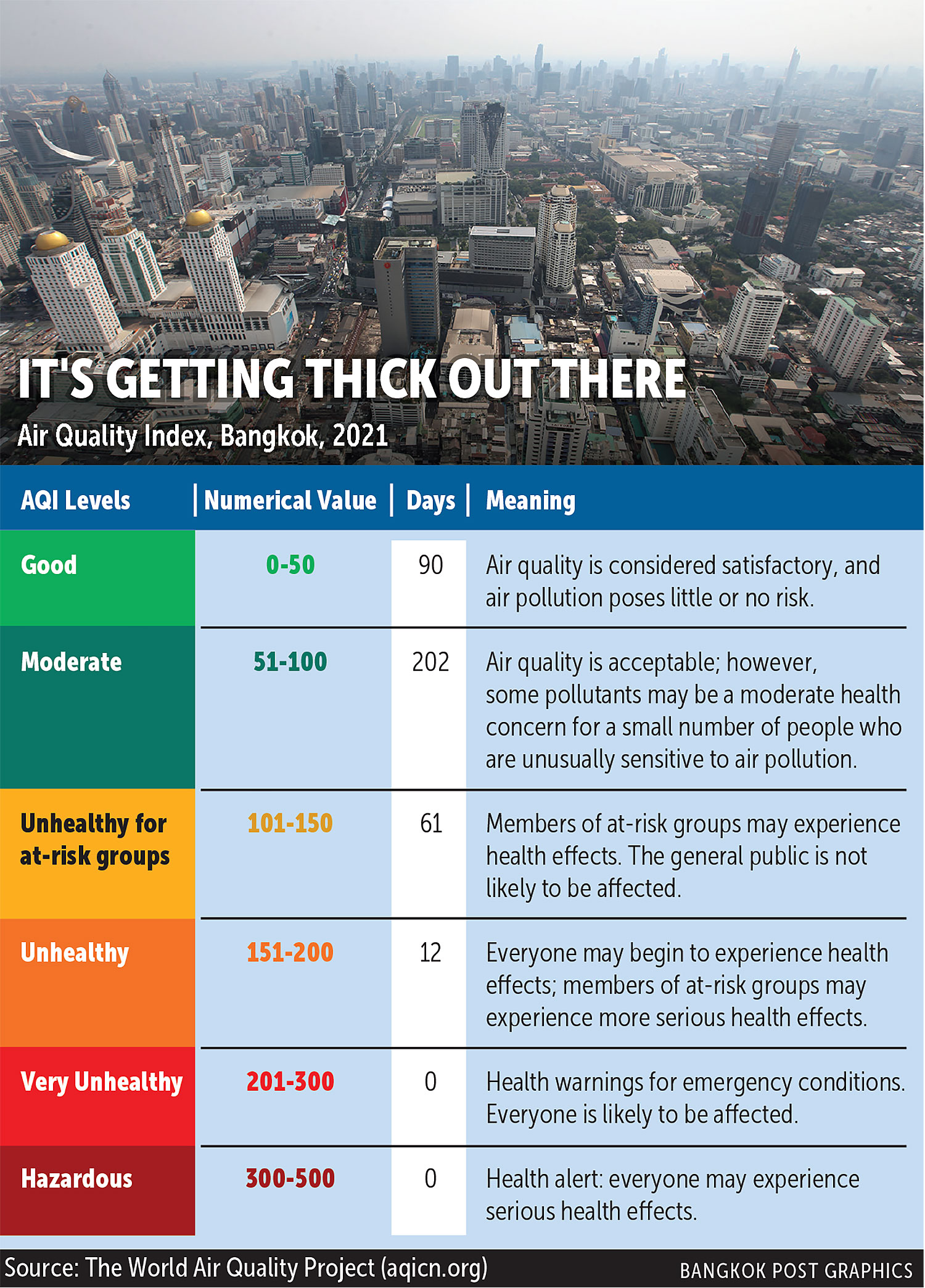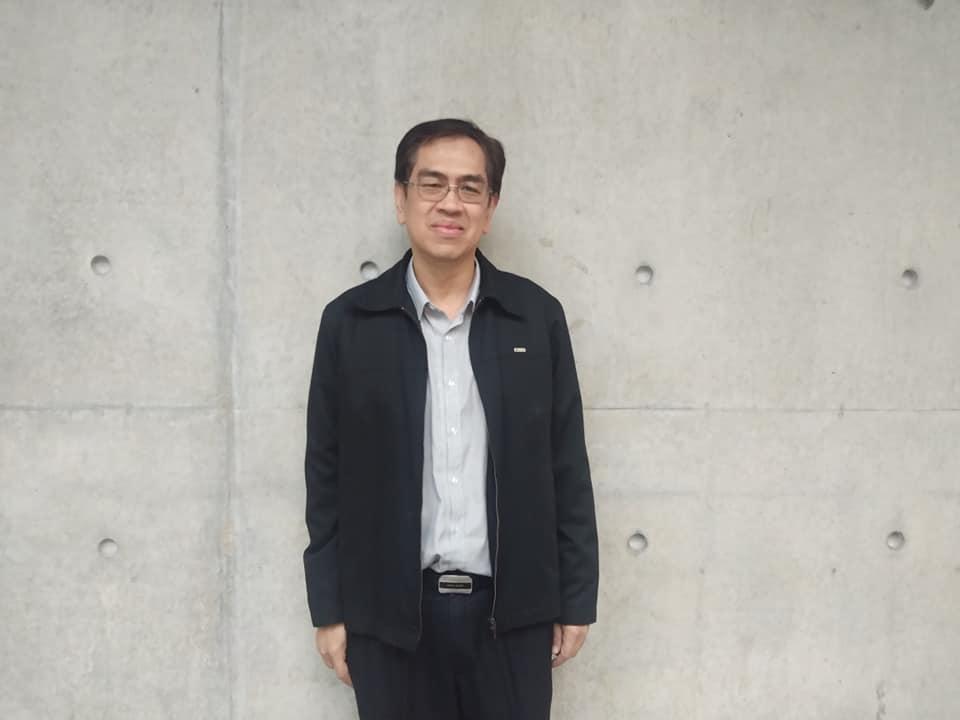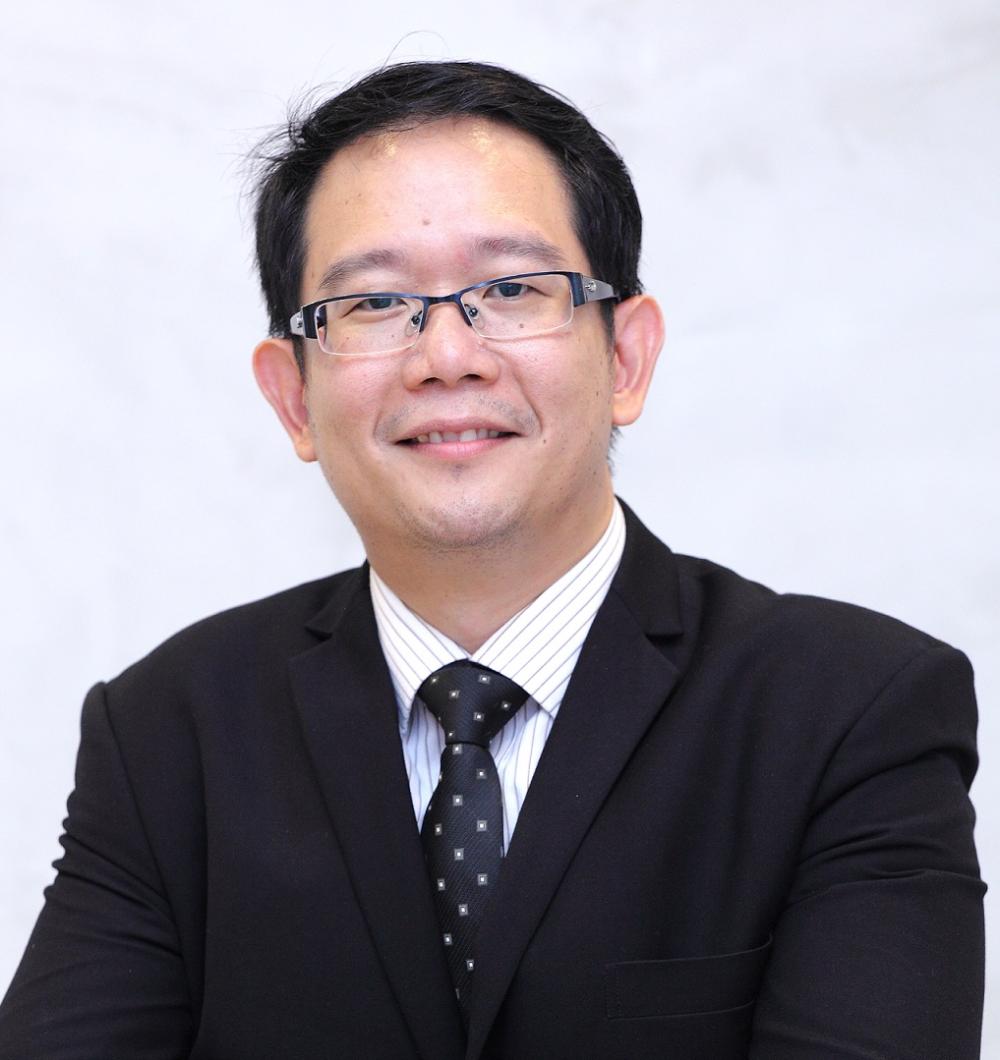Fighting to breathe

Bangkok is shrouded in haze with record high PM2.5 levels during the cold season. This picture was taken on Dec 6 last year.
Despite the government's efforts to tackle the seasonal haze problem in the capital, dense clouds of smog reappeared and blanketed the city once again in November when the weather turned cool and dry, marking the return of the severe air pollution in Bangkok.
The thick grey smog not only affects the environment, as it is made up of fine particulate matter (PM2.5), but it can also cause cardiovascular and respiratory diseases and cancers, according to the World Health Organization (WHO).
The WHO estimated that in 2016, PM2.5 was responsible for about 4.2 million premature deaths around the world.
This is bad news for many people, especially outdoor workers and the poorer population in the city, who are more vulnerable to the health hazards of haze, as they have to endure another period of intense air pollution until the smog dissipates around March.
Vajarathorn Jatianandana, a street food vendor in Lat Phrao district, said he was disappointed by the authorities' failure to reduce the seasonal PM2.5 smog, saying he has seen no substantive measures to tackle the problem.
"Bangkokians have faced this problem for many years and we have not seen any improvements," Mr Vajarathorn said.
"I do not think we can rely on the authorities to solve the problem, as they only act at the last minute."
"Their response is weak; they just tell us how to protect ourselves from pollution. And when this smog season is over, this issue is forgotten until the next smog season."
As the Bangkok gubernatorial election nears, Mr Vajarathorn said he wants to see a new governor who can address the chronic haze problem and show a genuine commitment to improving the city's environment.
"Living in Bangkok, it is hard to avoid exposure to pollution, as we are surrounded by pollution sources," he said. "If we do not make the city healthier, how will our children have a healthy life?"
Sakunrat Thongtongkham, a Bangkok resident working in Bang Rak, said she has noticed the PM2.5 smog getting worse every year, and more people are getting sick from exposure to air pollution.
"The city's environment is much more polluted nowadays compared to when I was young," she said.
"People now need to have air conditioners in their home, in their car and at their office to avoid breathing polluted air. Meanwhile, those who work outside or cannot afford air conditioning are forced to live in a harmful environment."
She said the new Bangkok governor will need to have an action plan to solve the air pollution problem and restore the environment because these are issues that directly affect people's lives.
Sonthi Kotchawat, an independent expert on the environment, said all state agencies should step up efforts and produce stricter regulations to fight the problem.
Mr Sonthi said the seasonal surge of air pollution during the cooler months in Bangkok is due to a temperature inversion condition, preventing pollution from the city to rise into the atmosphere.
"As it is beyond our power to interfere with the weather, we need to tackle this problem by controlling pollution emissions at their sources," he said.
"Because the smog in Bangkok comes from multiple sources, within the city and elsewhere, strong measures across agencies are required to regulate and cut down air pollution emissions."
Internal sources include traffic, construction sites and industries in the metropolitan area, while external sources are the burning of sugar cane and leftover paddy straw on farmland in nearby provinces.
Even though the Bangkok governor has limited power to prevent the problem, Mr Sonthi said the governor has a crucial role to play as coordinator between various agencies.
Mr Sonthi said an action plan from the central government to mitigate air pollution in the long term is also essential.
"The [Bangkok Metropolitan Administration] has the direct power over many aspects of city management," he said.
"One important thing the BMA can do is increase green spaces and public parks to at least 13 square metres per capita as trees can boost the quality of the environment in the city."
Assoc Prof Witsanu Attavanich, of Kasetsart University's Faculty of Economics, said the Bangkok governor should also focus on reducing emissions in the transport sector as traffic is one of the primary sources of PM2.5 in the capital.
"Despite the BMA not having full regulatory powers over the transport sector -- as the jurisdiction lies with the Department of Land Transport -- the BMA can still lead with improvements in the public transport system," he said.
"The most suitable way to reduce traffic volume is by encouraging citizens to use public transport rather than driving their own cars."
"The BMA should also work with the department to forge a regulation for private car licensing to encourage people to discard old makes that emit high amounts of pollution and coordinate with the Ministry of Energy to upgrade fuel standards," he said.
Assoc Prof Witsanu also urged the BMA to enact industrial regulations that align with the Pollutant Release and Transfer Registers principle to inspect and control factory emissions.
Figures on Bangkok air quality by the World Air Quality Index Project, cited in a Rocket Media Lab report, said Bangkok enjoyed only 90 days of "green" air quality last year, or 24.6% of the entire year.
ถัดไป: Green sea turtle lays eggs on Phuket beach
การอ่านที่เกี่ยวข้อง
- President Xi Jinping and Azerbaijani President Ilham Aliyev meet in Samarkand
- Brazil’s deadly mudslides reflect neglect, climate change
- Australia PM marks start of election year with apologies
- Aid flight arrives in Tonga; phone lines partially restored
- China-ASEAN Innovation and Entrepreneurship Competition is now Open for Applications
- Protests spread
- Observing voting
- Children's Voices Blend into World Games Passion, and Melodies Paint Chengdu's New Chapter
- Former Philippine President Duterte Faces ICC Trial Amid Sovereignty Dispute; Supporters Decry
- NZ PM Ardern urges unity on COVID-19 on Waitangi Day



